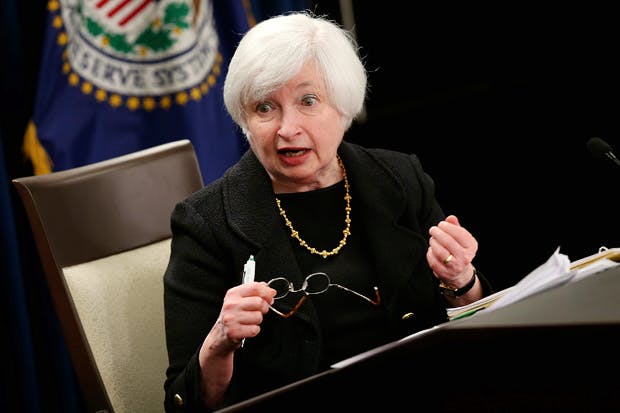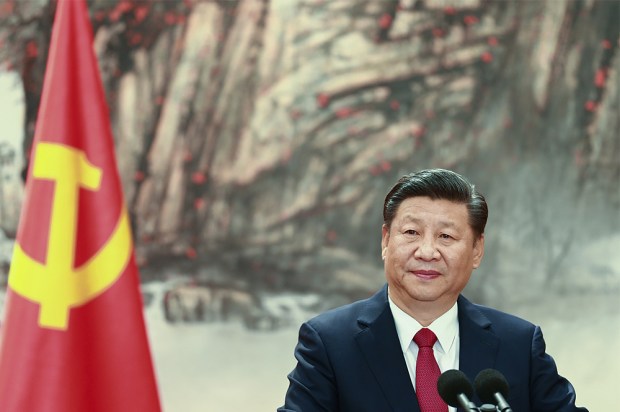When news broke last Thursday evening that the US Federal Reserve had decided to keep interest rates on hold, I happened to be surrounded by serious economists representing a range of viewpoints and nationalities. None seemed surprised by the decision, though the media had declared it to be on a knife edge. But I did sense disappointment, not so much because the assembled sages thought technical data pointed to a rise but because the whole will-they-won’t-they saga of the first US rate rise since December 2008 (or March 2009 in the case of UK rates set by the Monetary Policy Committee) now feels as if it has dragged on far too long.
Despite some off-piste remarks by Bank of England economist Andy Haldane to the effect that rates might actually have to be cut again to protect the UK’s recovery if other parts of the world go haywire, the general expectation (including, we gather, in the governor’s parlour) is that rates will start rising, in small increments, by early next year at the latest but will remain low by historic standards even in this new phase, reaching no more than 2 per cent by 2018. Given that scenario, a quarter-point rise this autumn would have no shock value; it would merely signal that a return to monetary ‘normality’ is at last on the agenda.
But by deferring again and again, central banks want us to understand that they are still more worried about deflation, debt levels, China and the eurozone than most western citizen-consumers seem to be. Behind that, I think today’s central bankers are terrified of leading markets in ways that history might judge to have been wrong — as former Fed chairman Alan Greenspan’s cheap-money era is now judged — while today’s investors just want cheap money and have learned to bluff the rate-setters, by threatening to panic, into keeping it that way. If I was a member of the MPC, I hope I’d have the bottle to align myself with Ian McCafferty, the CBI economic adviser who for the past two months has been the only one to vote for a rise.
No meeting of minds
Wouldn’t ya just love to be a fly on the wall at briefings offered by TheCityUK lobby group and the City of London Corporation for Jeremy Corbyn and John McDonnell ‘to help inform their policymaking’ — which on first indication could include a financial transactions tax, a windfall tax on banks and a 60 per cent income-tax rate.
I suggest the City team recruits the irrepressible Lord (Digby) Jones to do his celebrated ‘Who pays for government? We do!’ rap about the private sector generating the profits that create the jobs that generate the tax revenues that pay for the public sector and its follies. Will there be a meeting of minds? Of course not. Does it matter? Not really — because on current showing, Corbyn and his shadow chancellor are more likely to be working as Uber drivers by 2020 than planning a revolutionary budget.
Going cold again
Back in April 2012, I celebrated the relighting of the blast furnace at Redcar, once Europe’s largest, under the ownership of Sahaviriya Steel Industries — which was planning to ship slab to rolling mills in Thailand to make car bodies and white goods. SSI bought the plant from Tata of India, which had left it cold for two years having acquired it as part of Corus, the residue of privatised British Steel. ‘Steelmaking in this country had long seemed set on a path of terminal shrinkage, overwhelmed by globalisation,’ I wrote, but SSI’s arrival (and new Tata investment in South Wales) offered new hope. Sadly no longer: the Teesside plant is on the brink of insolvency, with 3,000 jobs at risk, and the government has refused a loan to keep it going; Tata is also retrenching. This kind of heavy industry just isn’t us any more, even though we still have adjacent pockets of manufacturing excellence in the automotive and aerospace sectors: in a way it’s surprising British steelmaking has lasted as long as it has.
Tell me more
I’m always interested in your opinions, especially when they agree with mine. This response to my recent item about corporate governance came from a famous name with 40 years’ boardroom experience: ‘It’s really extraordinary that we have allowed this nonsense to flourish with, as you say, only one beneficiary: the headhunter. Hiring in chairmen and chief executives sends all the wrong signals to investors, namely that there’s no one in the company whom the board judges to be competent to hold those appointments. And it sends the demoralising message to staff that, however competent they may be, they’ll never attain the two most senior positions in the company. In fact the chairman and chief executive should not only know the company’s business inside out but also its people: the grafters and creators, the slackers and phonies.
‘And another unhealthy, not to say idiotic, modern notion is that boards of directors function better when they’re adversarial. It’s a biological fact that you let your friends down last of all, but when executives feel that they are not trusted or supported they become secretive — that’s when the trouble starts. I would rather have died than embarrass my non-execs, and that was the best discipline I could ask for.’
I’m also happy to be told when I’ve missed a key point. This came from the chair of a small rural charity that delivers cooked meals to old people in their own homes: ‘I take your points [last week] regarding the effects of the Living Wage overall, but you omitted to mention small charities. The government has not taken our situation into account. Grants for core funding are already hard to source and the first tranche of the Living Wage will add £6,000 to our staff costs. If the voluntary sector is to continue to help maintain the elderly in their own homes and out of expensive care homes, where’s that extra money supposed to come from?’ Keep the comments coming, to martin@spectator.co.uk.
Got something to add? Join the discussion and comment below.
Get 10 issues for just $10
Subscribe to The Spectator Australia today for the next 10 magazine issues, plus full online access, for just $10.















Comments
Don't miss out
Join the conversation with other Spectator Australia readers. Subscribe to leave a comment.
SUBSCRIBEAlready a subscriber? Log in